Puppies bring joy to our lives and make great companions, but they are also a lot of work. One of the most important tasks new pet parents will have to do is to potty train their puppies.
You have probably heard from other dog lovers, seen from the movies, or may even have first-hand experience of how toilet training a puppy can be very frustrating. Also, housebreaking a puppy can be daunting, stressful, and time-consuming for any pet owner. But the first question is, what age should a puppy be toilet trained?
To potty train a puppy is crucial as it lays the groundwork for several other training skills required later. Once you surpass this, both you and your dog will surely reap great rewards.
In this article, we take a look at the ideal age for toilet training your pup, as well as tips on how you can make your house-training mission smoother and more successful.
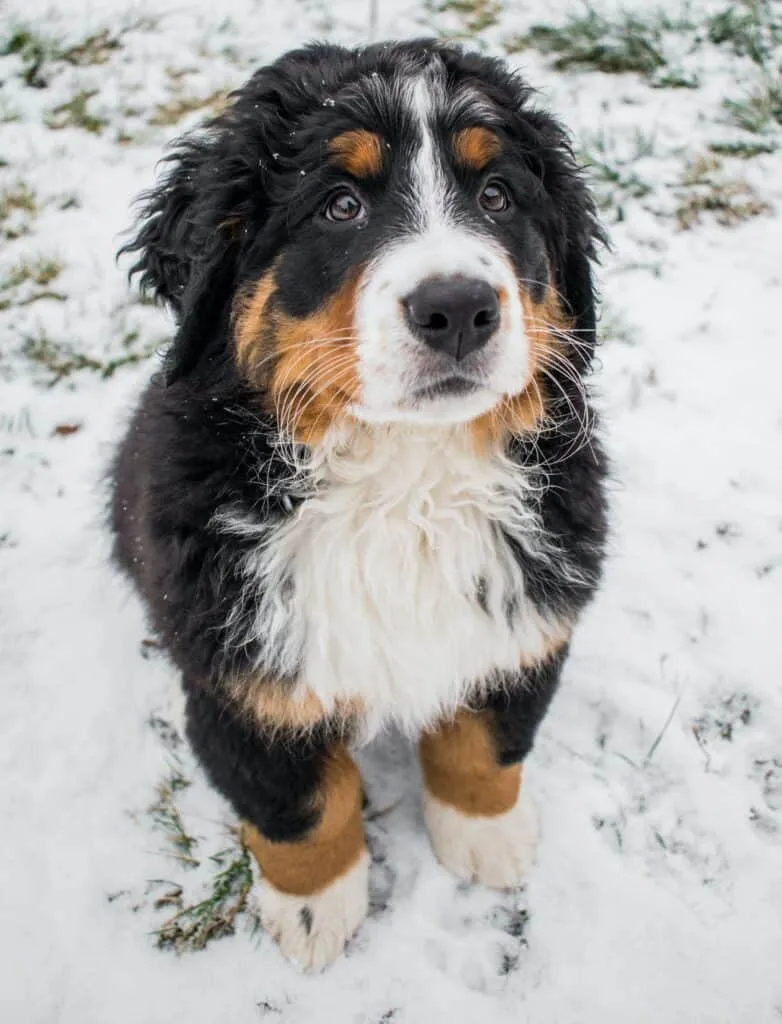
Best Age To Start Toilet Training Your Puppy
Bad habits die hard, they say. If you do not train a puppy while still young and adaptable to change, you will definitely regret it when you realize it is already too late.
On the brighter side, if you begin at the ideal age, your puppy will get used to good potty habits and observe them as he becomes a full-grown adult dog. So, at what age should a puppy be toilet trained?
Pet experts suggest that the best time to start toilet training your puppy is at an age when he has adequate control of his bowel and bladder movements and can probably learn to hold it in until allowed to let go at the designated potty area. This is between 12 weeks to 16 weeks old. A three-month-old puppy would be at the right age to start learning.
Most puppies will not control their bladder and bowel movements until they are about 12 weeks old.

Can I Start Early?
To lessen indoor mishaps, gradually introduce potty training and start house training when your puppies are young. At 6 weeks old, take them outside at least every hour for their potty breaks. Otherwise, you can put him in dog diapers until he learns to potty outside.
Amazon.com offers a variety of pet diapers like this disposable diapers , which come in three sizes (XS, Medium, and Large) for your male puppies and this one for female pups.
Or, if you are looking for washable ones, here’s this Washable Dog Diapers by Pet Parents , which comes in a pack of 3. It comes in various sizes ranging from X-Small to X-Large. Potty accidents are solved in the meantime!
Generally, puppies will have a good understanding of where they are supposed to potty after about a month of house training.
At around 16 weeks (four months old), your young puppy knows to wait for you to take him outside for his potty break. You will know that your puppies need to go when they signal or send cues telling you he has to potty. These cues may include barking, running around, whining, or scratching at the door.
Despite this, accidents should still be expected during this young age. And when they do happen, this Swivel Bin & Rake Pooper Scooper would help you clean up after your furry pet’s mess.
Of course, it is proper to store these mess on proper disposable poop bags , which fits most dispensers. And to get away from stains and odors caused by potty accidents, using this Pet Stain and Odor Eliminator with natural bio-enzymatic formula will eliminate the toughest odors caused by potty accidents.
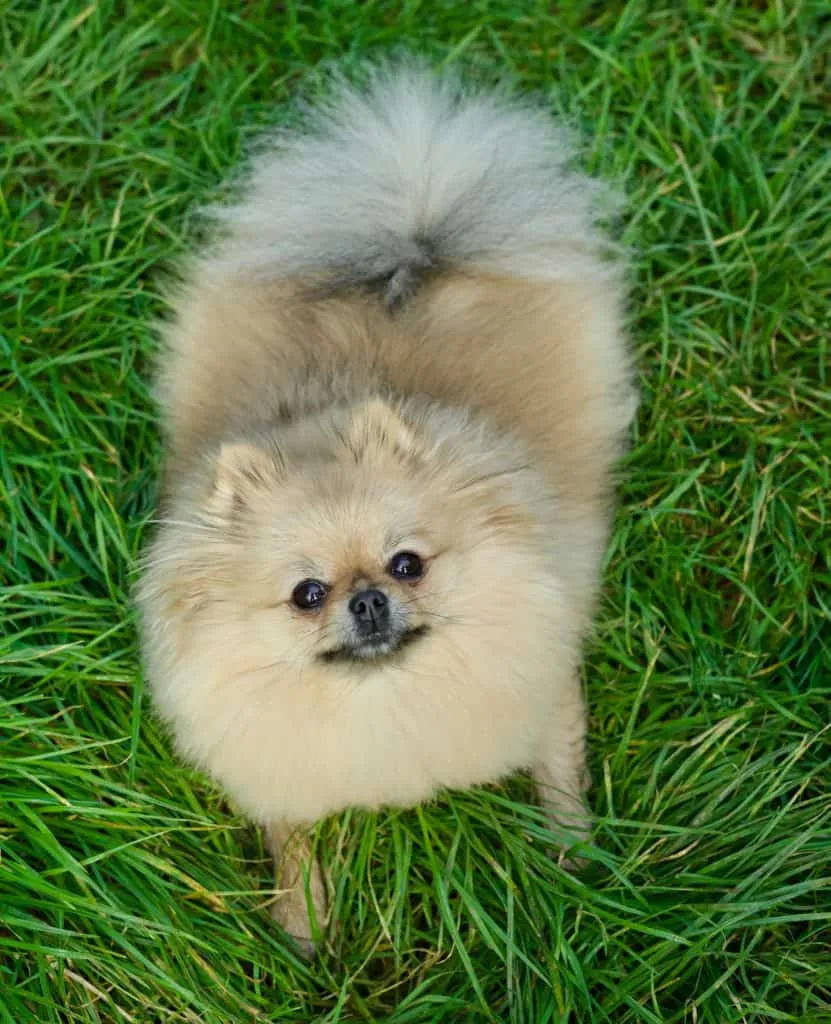
Can A Puppy Be Toilet Trained In A Week?
Toilet training is one of the most important skills for any pet owner to teach their pup. It isn’t always easy, but it can be made easier with a lot of patience and consistency.
Teaching puppies proper toileting habits is achievable with dedication and hard work. While it may take several weeks to fully toilet-train an adult dog, it is possible to teach a puppy the basics in only one week.
House training may take longer if you bring home a new puppy older than 12 weeks old and has been potty trained in a crate or, worse, not fully potty trained.
You may be required to correct his inappropriate behavior through efficient methods like bell training and positive reinforcements.
Experts claim that a puppy has bladder control and bowel control of around one hour per month of his age. Hence, at four months old, it will probably take a maximum interval of four hours between potty trips.
However, this may be affected by his fluid intake and level of excitement, as dogs tend to loosen their bladders if overexcited.
On average, it normally takes a puppy around four to six months to be fully toilet-trained. However, some cases can take up to a year due to varying influential factors.
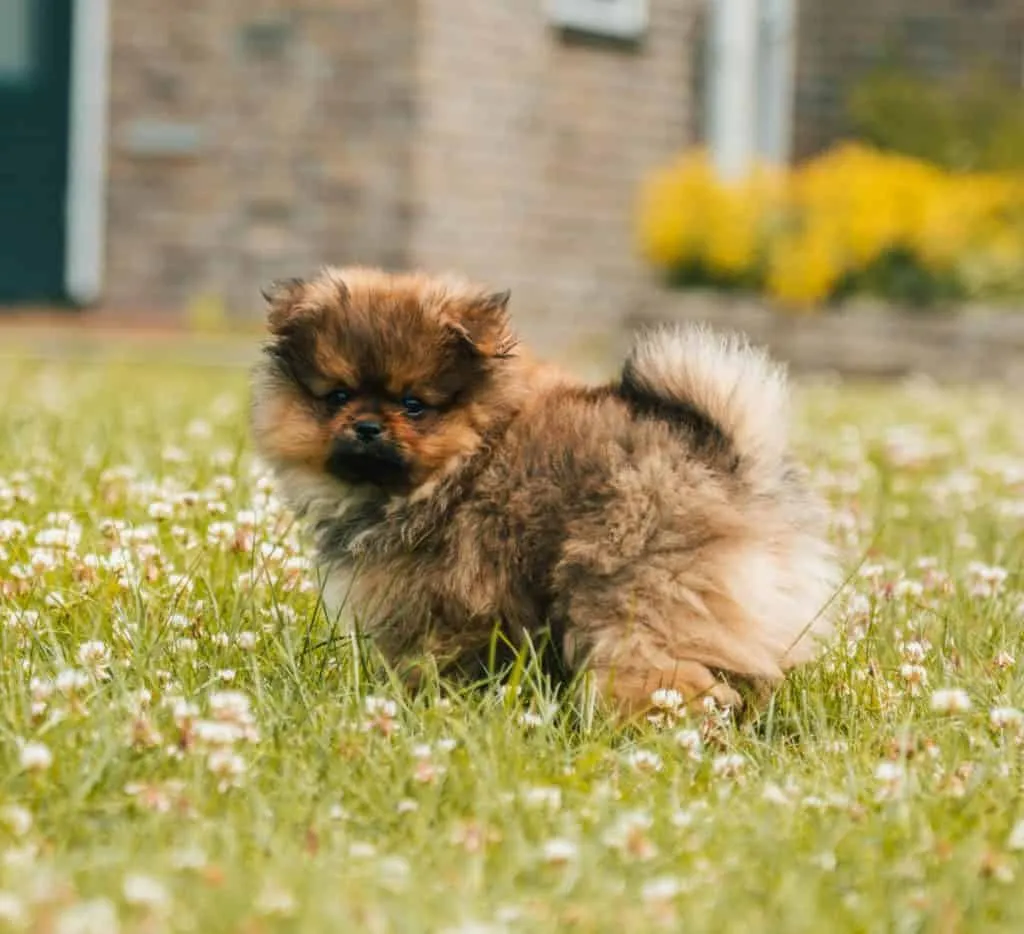
Factors That Affect Toilet Training
There are a lot of variables that might affect your progress in potty training your puppy. These will range from your end to his.
Pet Owners
These include the approach you are using to train him, your patience with his development, and your consistency in sticking to the rules.
Bear in mind that you are the one guiding him through this whole experience, as you are his teacher from whom he learns.
Puppy
These consist of the puppy’s age in relation to his developmental stage, size, bladder size, metabolism, and previous living conditions, which may be good or bad. Dog breeds also affect puppy training as some breeds are more trainable than others.
Always consider that each dog is unique, so some might react positively to the training process early on compared to others. Depending on some or all of these factors, getting your dog house-trained may take a bit longer than expected.
Resources
The use of various techniques and training aids may help in training your pups faster.
For most dog owners, using Puppy Pads helps in hastening your pet’s potty training. Every time your pup relieves himself somewhere else, immediately bring him to where the pad is. This keeps you consistent with house training and indoor puppy potty training.
Crate training also works for some dogs, while others opted to toilet train their pups without a crate.
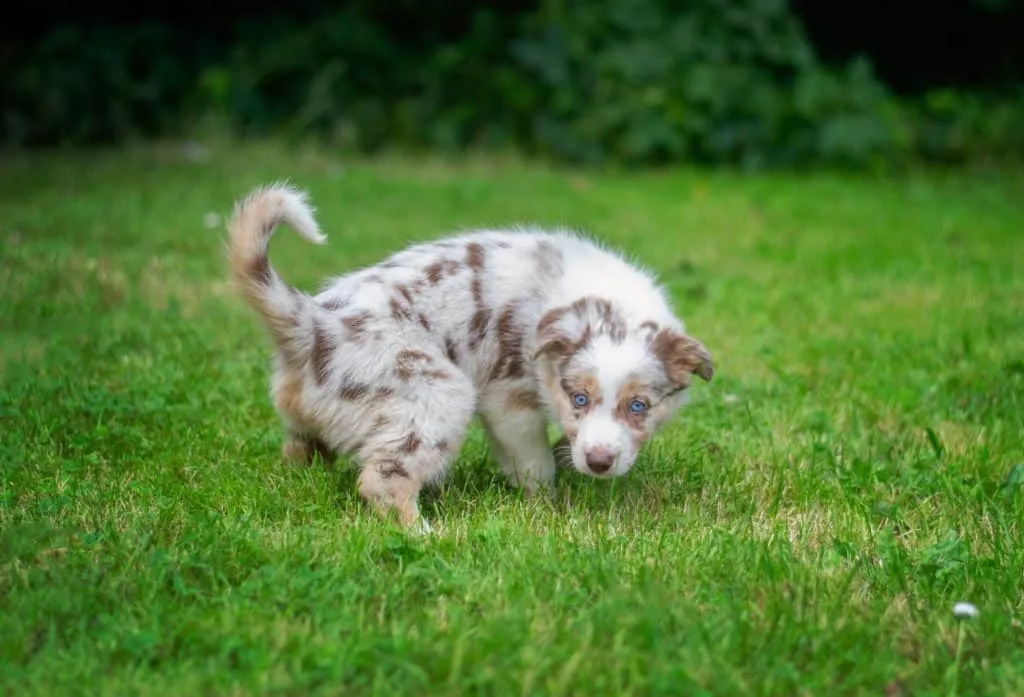
Puppy Toilet Training Considerations
Being a responsible dog owner means that you always have your dog’s best interests at heart. Now that you know at what age your puppy should be toilet trained, it’s time to learn some more considerations before proceeding with training proper.
This includes allocating your own time and effort as needed by your puppy to assist him in his toilet training journey.
Your role is to figure out when it is time for him to go outside. Once outside, teach him how to do his thing properly. To better help your puppy learn potty training etiquette, take into account the following tips.
Consistency
To help him quickly overcome his potty training endeavor, be consistent in observing the schedule of taking him outside for an opportunity to pee or poo.
Be persistent in using the confinement and supervision approaches to limit the number of accidental disposals. Otherwise, leniency and tolerance will only result in your puppy ultimately forgetting everything, which further delays your progress.
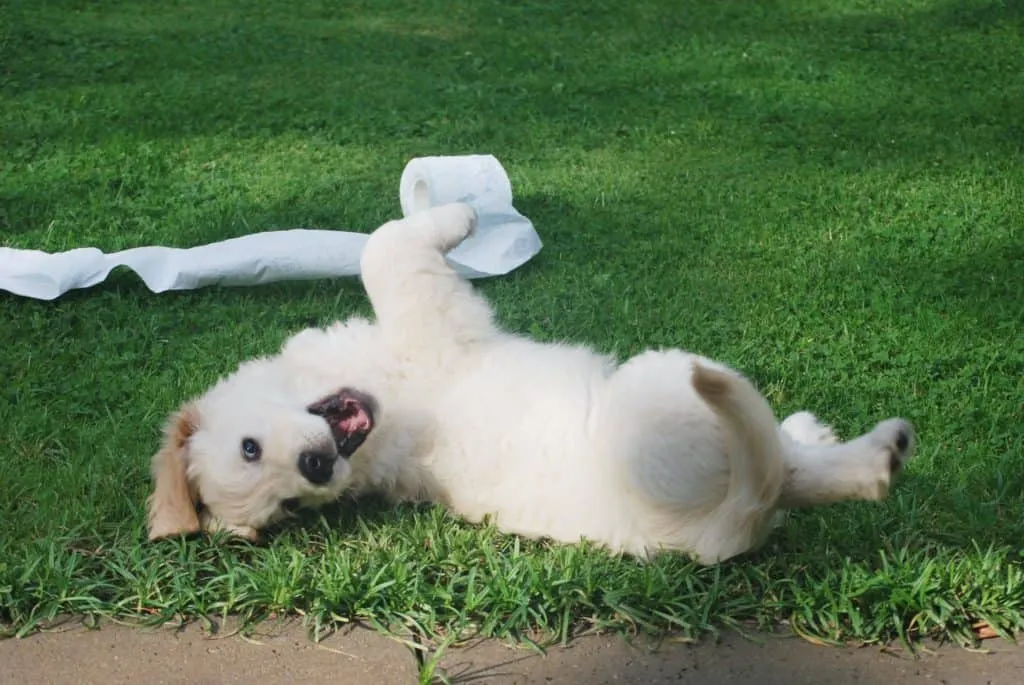
Early Signs
Be aware of the early signs. If you catch him in the act at the wrong place, interrupt him with a firm command. Then, immediately lead him outside to the designated potty spot.
Positive Reinforcement
Praise and reward your puppy after he is done with his business and every time he does it right.
No Punishment
Do not punish your puppy because this will only scare him. He will end up hiding his waste in other inappropriate places or have difficulty letting go whenever you are around. Instead, encourage him to go to the assigned area.
If damage has been done, just fix the mess. Thoroughly clean the soiled area to get rid of the odor. Dogs tend to use that same spot because it smells of their waste deposits.
Do Not Be Discouraged
Expect a few setbacks. Do not be disappointed if your puppy still has mishaps during his first year. Remember that every dog is different, so just continue with your management program.
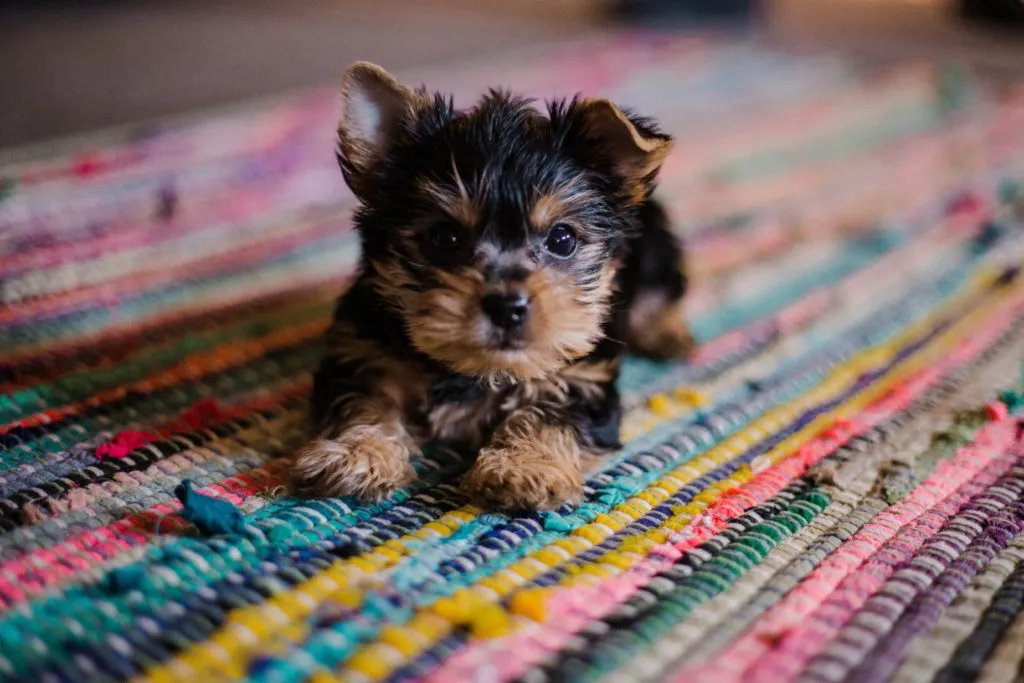
Importance of Early and Proper Toilet Training
Properly toilet training your puppy at the right age results in several instantaneous and long-term benefits. He will learn that there is a structural system to make life more comfortable for both of you.
As he begins to notice that he is positively rewarded for following your commands and observing good behavior, your puppy will be more eager to train with you.
Potty training a puppy is not a simple walk in the dog park. However, with utmost patience, consistency, and positive reinforcement, you and your best friend will get there sooner than you think.
As always, your purpose is to instill good manners while fostering a loving relationship with him.